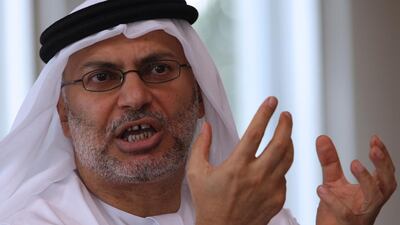Minister of State for Foreign Affairs Dr Anwar Gargash has voiced what many people around the world will have been wondering since the United States election: just how will Donald Trump wield his country's enormous global influence? Will he make good on his campaign rhetoric, which was strongly isolationist and devalued long-held international alliances, or will he walk back some of his more inflammatory policy promises in favour of a less disruptive ones?
The truth is that nobody knows, which is why every move in the transition process is being intensely scrutinised. Even that has produced conflicting signals. Mr Trump seemed to be reconciling with the Republican Party by appointing its chairman, Reince Priebus, as his chief of staff. However, shortly before, he appointed Steve Bannon, his campaign head and executive chairman of the far-right website Breitbart News, as his chief strategist and senior counsellor. A statement for the transition team said the two would work together as “equal partners”.
As Dr Gargash noted in his opening address to the Abu Dhabi Strategic Debate, even by the standards of this region, the Middle East is facing exceptional and difficult times. While all the countries in the region need to work together to ensure these challenges do not result in more turmoil and bloodshed, he noted – correctly – that “American global engagement remains crucial to ensure a stable, peaceful and predictable international system”.
However, all change presents opportunities, and it is possible a reset of US policy could work in our favour. Iran’s mendacious meddling is the obvious main problem in our region – as the protest letter sent to the United Nations on Sunday by the UAE and 10 other Arab countries outlines. The Obama administration’s so-called pivot to Asia seemed to enhance Iran’s regional role but for all Mr Trump’s policy vacillations, he has never been pro-Iran.
The US retains huge potential influence – capable of both good or bad. We need to do what we can to persuade the next administration to use that influence to support allies in the Gulf states.

